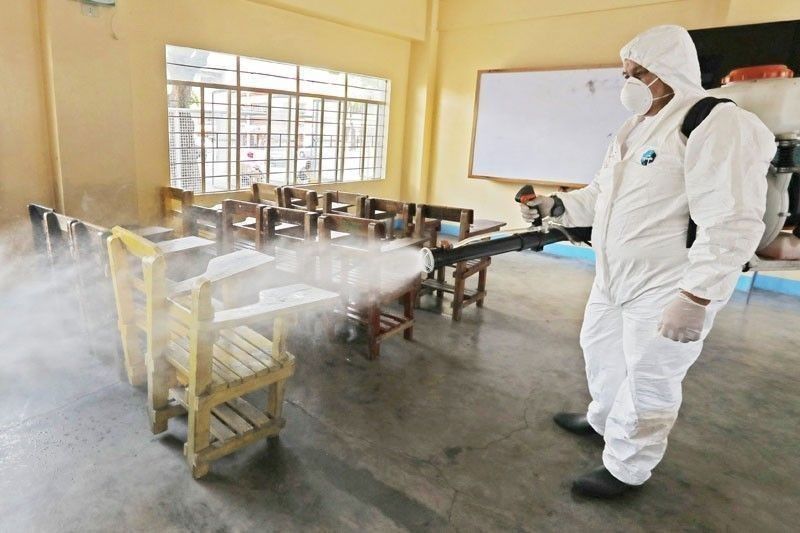Limited face-to-face classes mulled in low-risk areas

MANILA, Philippines — Months after President Duterte declared “no vaccine, no classes,” the government is considering proposals to allow the conduct of limited face-to-face classes in low-risk areas under the most lenient modified general community quarantine.
While a final decision has yet to be announced, Education Secretary Leonor Briones said the matter was extensively discussed during the Cabinet meeting on Wednesday night.
“We think that in areas that are classified as (coronavirus disease) low risk, we may allow them to hold limited (face-to-face classes). The children would not be in school every day. It would be limited face-to-face with conditions,” Briones said in Filipino during the Laging Handa press briefing.
“We recognize that it would help our children if they have face-to-face relationship with their fellow children, teachers and administrators,” she said, noting its impact on having a conducive learning environment.
If the proposal is approved, Briones said a careful evaluation would be conducted before a school in a low-risk area would be allowed to conduct limited face-to-face classes.
“This is not automatic,” she said. “These facilities (of the schools) have to be able to accommodate requirements for social distancing, washing of hands and adequate medicine.”
Minimum health standards will be implemented to ensure that the risk of transmission is minimized.
Briones said the face-to-face classes would be held in batches, with students only coming to school once or twice a week. The rest would be spent on home study.
The agency earlier said class sizes would be reduced if actual instruction is allowed to ensure that social distancing protocols are followed.
Briones cited the recommendation of Task Force on COVID response chief implementer Carlito Galvez, who discouraged physical education, sports and other activities that would physically expose students to one another.
20.7 M enrollees
Some seven million students have not enrolled for the incoming school year, which is expected to largely forgo face-to-face classes due to the pandemic.
As of yesterday, DepEd enrollment data showed that only 20.7 million have expressed intent to enroll in public and private schools.
This represents 74.6 percent of the total enrollment last school year.
DepEd Undersecretary Revsee Escobedo said they have expected the drop due to the economic impact of the ongoing public health emergency.
“A number of our countrymen have lost their jobs. In fact, on our records on private schools, there are really a lot who have not yet re-enrolled and a huge number transferred to public schools,” he added in Filipino.
“Those who lost opportunities, those who lost jobs is a huge factor,” he added.
The breakdown of enrollment figures showed that only 1.09 million have so far enrolled in private schools, which is only 25 percent of the four million students last year.
There are 19.6 million enrollees in public schools, which is 86.9 percent of last year’s.
A total 328,862 students have so far transferred to public schools.
Communications challenge
In an interview with The Chiefs aired on Cignal TV’s One News on Wednesday, Undersecretary Jesus Mateo said communicating their plans has also been a challenge and may have had impact on enrollment.
He said some parents are concerned over the safety of their children as they still thought that face-to-face classes would be conducted.
Some believed that classes would only be conducted online, discouraging those without gadgets or internet connectivity, he added.
“We have what we call the self-learning modules, either printed or digital. If families have devices, what we would do is send them USBs containing the learning materials. If they don’t have devices, we would send them the self-learning modules,” Mateo said. Janvic Mateo
Related video:
- Latest
- Trending



























